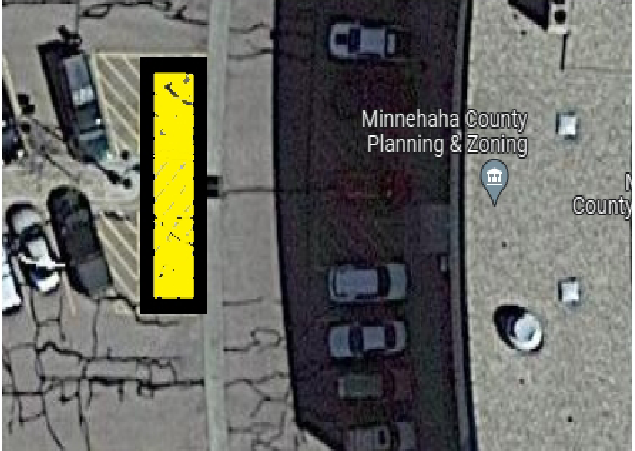Judge blocks Minnehaha policy restricting where signatures can be gathered at county building
- Oops!Something went wrong.Please try again later.
A federal judge granted a preliminary injunction Tuesday blocking portions of a new policy restricting where petition gatherers could stand at the Minnehaha County administrative building and that required petition gatherers to check in with the Minnehaha County Auditor's Office.
The lawsuit was filed by Dakotans For Health, a healthcare advocacy network and ballot question committee, in May after the Minnehaha County Commission voted to create the new policy brought forth by Minnehaha County Auditor Leah Anderson. Commissioners and Anderson were named as defendants in the case.
Anderson said she had seen an uptick in political activity at the administrative building, and there had been conflicts between those gathering signatures and those who opposed the activity. There had also been one written complaint from a county employee about petition circulators and blockers and other verbal complaints from residents and employees.
More: Federal judge temporarily blocks new petitioning policy at Minnehaha County admin building
As part of the new policy, petition gatherers and those protesting the activity would have been required to stand in a designated area in the west parking lot. Dakotans for Health argued that the proposed area blocked them from 99.3% of the outdoor space. Traditionally, petition gatherers have stood on the sidewalks near the entrance to the building.
Dakotans for Health are currently circulating petitions for two ballot initiatives: one re-establishing abortion rights for South Dakota women in the first trimester of pregnancy and the other to eliminate the state's sales tax on groceries.

In a statement, Dakotans for Health wrote that Judge Roberto Lange's ruling was a "significant victory."
"It underscores the importance of safeguarding fundamental rights, including the right to express oneself freely and engage in peaceful assembly," according to the statement. "Judge Lange's decision not only condemns the restrictive policies put forth by Minnehaha County but also sends a powerful message that attempts to curtail basic freedoms will not be tolerated."
Ruling hinged on use of public sidewalks as a public forum
In his ruling, Judge Roberto Lange wrote that the sidewalk running in front of the west entrance of the administrative building is considered "a traditional public forum given... the sidewalk's long history of being used for petition circulation."
Lange cited a 2014 federal lawsuit that found public streets and sidewalks were protected by the First Amendment because "of their historic role as sites for discussion and debate."
More: South Dakota's abortion measure tangled up in fight over petition location
Additionally, Lange found that the new policy was not narrowly tailed and that by placing petition circulators over 50 feet from the administrative building doors, circulators would have to call out across the parking to people entering the building.
"In short, the new policy makes it much less likely that voters using the west entrance will engage at all with petition circulators," according to decision.
In his decision Lange wrote that the county can enforce the prior public use policy or portions of the limited public use policy that do not related to the designated area.
This article originally appeared on Sioux Falls Argus Leader: Dakotans for Health win lawsuit over Minnehaha County petition policy
